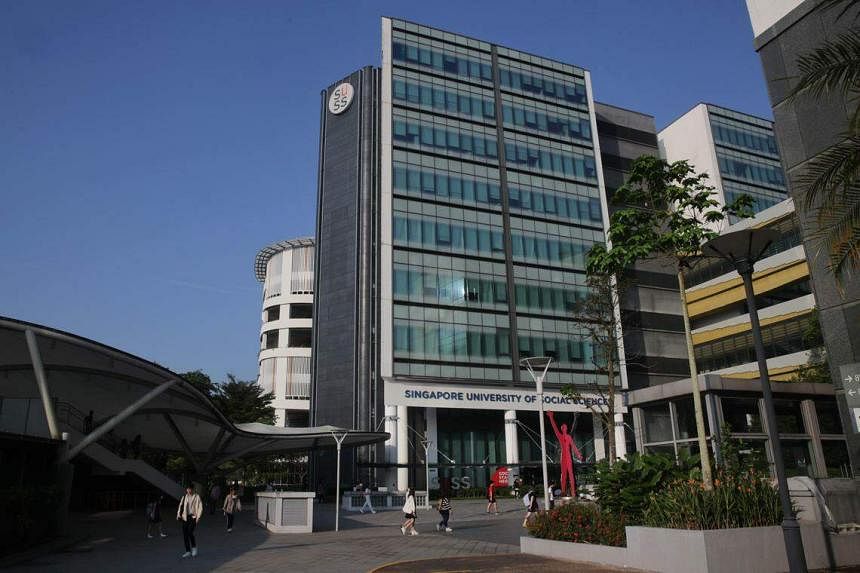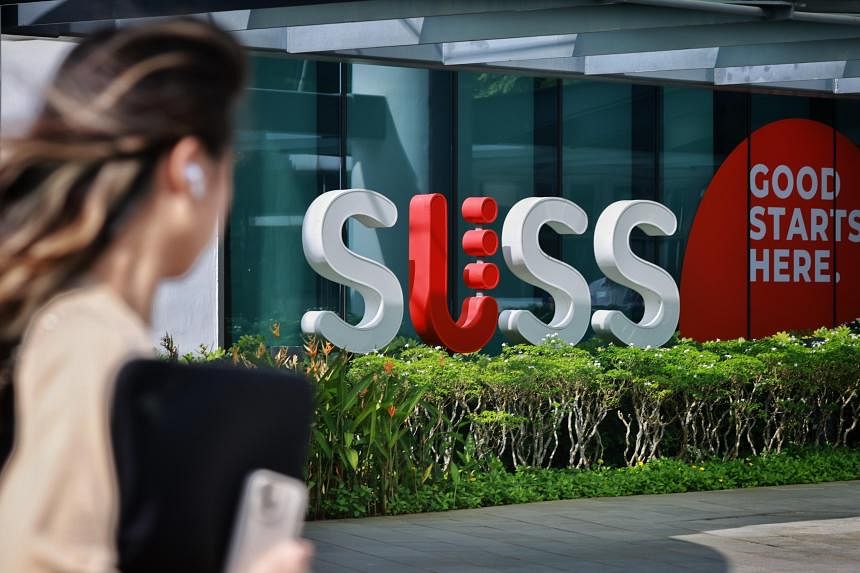SINGAPORE – The Singapore University of Social Sciences (SUSS), which operates out of rented premises, is in talks with the Government for a centrally located campus that it can call its own.
Singapore’s sixth university, which has about 13,850 part-time and just over 4,000 full-time undergraduate students, would not say if it is considering specific sites, just that it is discussing various options that meet its unique needs.
The university wants a location that is convenient to get to from around the island, given its high proportion of students who are working adults, and a space that is purpose built to foster realistic learning that involves industry partners, said SUSS president Tan Tai Yong.
The update comes three years after SUSS first said it was in discussions with the Ministry of Education about a new campus. The school has been operating on rented premises since 2005.
Currently, the university rents space from the Singapore Institute of Management in Clementi Road, where it began as UniSIM, a private university launched by SIM.
Since UniSIM was converted to a publicly funded university in 2017, it has grown from 1,500 students to about 19,000 students, including those pursuing postgraduate qualifications and other courses. The university now offers more than 90 undergraduate and graduate degree programmes.
What makes SUSS stand out from the other five universities is that the majority of its students are studying part-time and are working adults. Every year, about 1,000 full-time undergraduate degree students and some 4,000 part-time undergraduate and graduate students enrol. The average age of its part-time undergraduate students is 30. On average, they are on campus three times a week, usually in the evenings.
Professor Tan said accessibility is crucial for the school, as it caters to a large proportion of working adults pursuing degrees and other continuing education and training courses.
“We hope to have a campus in a good location that does not disadvantage travel from any part of the island. Public transport infrastructure, such as MRT stations and bus stops, should be within walking distance,” he added.
“This will ensure convenience, less reliance on private transport and safety for our part-time students, many of whom attend classes at night and need to travel home after 9pm.”
Given the majority of SUSS’ students are pursuing degrees part-time and are working adults, the campus also needs to meet their requirement for flexibility of learning through various modalities, whether on-site or virtual, Prof Tan said.
“With working adults, effective learning is often experiential, and involves collaboration and interaction with peers, industry practitioners and academics in realistic contexts,” he added. “Hence, the physical campus must cater to these interactions, and not be confined to the provision of classrooms.”

He envisions a campus that provides incubator spaces for business development, product prototyping and testing, and stakeholder engagement.
As a university for the social sciences, SUSS also intends to create a living laboratory for learners to be involved with the community in identifying and solving problems.
Prof Tan said this could take the form of social spaces that facilitate the exchange and testing of ideas. He expects enterprises, industries and social agencies to have an on-campus presence to better facilitate teaching, mentoring, experimentation and applied research.
Mr Peter Lim, 38, a business development manager who is pursuing a business degree, suggested the new campus provide co-working spaces.
He said: “Right now, I go down three evenings a week. It is tiring as I have two young children as well.
“It will be great if there are proper co-working spaces set up on campus, then I can work from there during the day or at least part of the day, and then attend classes in the evening.”
Mr Chee Yi Long, 34, a part-time student in a master’s course in built environment, said SUSS is a special university.
The university brings together people from all walks of life and various age groups, and students learn as much from one another as they do from the lecturers, said the retail operations manager with Far East Organization. “It will be good to have a campus that enhances this peer-to-peer learning,” he added.
He hopes the Government will provide SUSS with a central location, noting too that it will be ideal to have co-working spaces.
“I move around a lot in my job and often have to take calls, so it will be convenient to be able to do it from campus,” he said.
Such a university will encourage people to keep up with the rapid pace of change, by reducing the barriers to continuing their learning journey, said Mr Chee.
“That’s why they should build campuses that make it convenient for working adults to juggle work and studies.”


